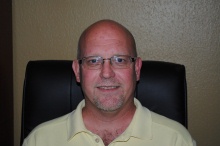Transforming Communities through Public Education
 David Romick is being honored as a Champion of Change for his efforts in school turnaround.
David Romick is being honored as a Champion of Change for his efforts in school turnaround.
Public education is one of the most fundamental rights of American citizens. As a career public educator, I have long advocated, both behind the scenes, and right out front, for public school teachers so that we can give our students the world-class education they deserve. As a product of the Princeton City Schools in Cincinnati, Ohio, I realized early that the foundation I was given enabled me, with hard work and commitment, to succeed at the undergraduate and graduate levels at several of the area’s finest universities. My grandmother was a teacher in Lakewood, Ohio. Both of my parents as well as subsequent step-parents were also professional educators in Ohio’s public school system. Yes, I had a choice about what direction to take with my life, but I chose one which has provided me and my family with many years of deep satisfaction and purpose.
Public education is the avenue for transforming communities. Early in my career, I chose to meet the challenges of public service in an urban environment – the Dayton Public Schools, in Dayton, OH. Unlike many cities, Dayton does not have pockets of wealth, so we are particularly hard hit by the current recession. There is, however, rather a deep sense of community pride which must be built upon through education. This is absolutely crucial to the growth of our city.
So what can a teacher do to affect change in his or her community? I was encouraged by colleagues to step into various leadership roles, beginning at the building level and continuing until my present position as president of the Dayton Education Association. In this position, I have been able to have a hand in affecting necessary change in our school district while advocating for public education and public school teachers at the local, state, and national levels. Change and advocating for change are both difficult, but through the work of the Ohio Education Association (OEA) and the National Education Association (NEA), I have been given the resources and assistance necessary to continue the work in which I believe so deeply.
As an example, Dayton’s Belmont High School was in a similar situation as Eastside High, documented in the movie Lean on Me, which profiles what we have come to know as a school turnaround. Through collaboration with the building and district administration, school staff, and with resources from both OEA and NEA, the Priority Schools Campaign in particular, Belmont’s school community was able to build an educational institution where there once was an out of control, dangerous, low-achieving building. This transformation has proven to the local community, and the greater Dayton community that change can happen – when people work together, instead of in opposition, great things can happen for the children we serve and the communities in which we all live.
David Romick is currently serving his first two-year term as the president of the Dayton Education Association, the Ohio Education Association affiliate in Dayton, Ohio.
White House Blogs
- The White House Blog
- Middle Class Task Force
- Council of Economic Advisers
- Council on Environmental Quality
- Council on Women and Girls
- Office of Intergovernmental Affairs
- Office of Management and Budget
- Office of Public Engagement
- Office of Science & Tech Policy
- Office of Urban Affairs
- Open Government
- Faith and Neighborhood Partnerships
- Social Innovation and Civic Participation
- US Trade Representative
- Office National Drug Control Policy
categories
- AIDS Policy
- Alaska
- Blueprint for an America Built to Last
- Budget
- Civil Rights
- Defense
- Disabilities
- Economy
- Education
- Energy and Environment
- Equal Pay
- Ethics
- Faith Based
- Fiscal Responsibility
- Foreign Policy
- Grab Bag
- Health Care
- Homeland Security
- Immigration
- Innovation Fellows
- Inside the White House
- Middle Class Security
- Open Government
- Poverty
- Rural
- Seniors and Social Security
- Service
- Social Innovation
- State of the Union
- Taxes
- Technology
- Urban Policy
- Veterans
- Violence Prevention
- White House Internships
- Women
- Working Families
- Additional Issues

